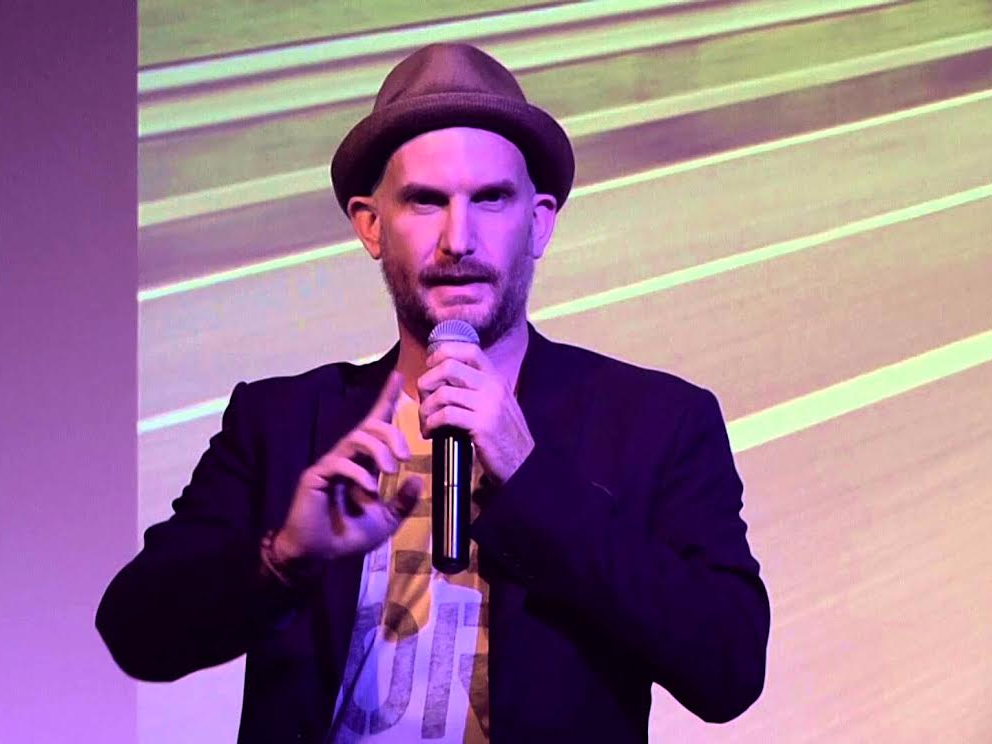• Leon Logothetis quit two jobs and traveled around the world seeking kindness for his Netflix series “The Kindness Diaries.“
• He said he’s met numerous people who claim to hate their jobs in his capacity as a speaker.
• Logothetis said breaking the cycle of job-related misery relies on “small steps.”
Leon Logothetis seemed to have it all, working at a family brokerage in London and leading an ostensibly happy life.
But he was miserable.
“I was wearing a mask and everything seemed to be okay,” he told Business Insider. “But it was not.”
Eventually, he said the depression became too much. After watching “The Motorcycle Diaries” – the romanticized and fictionalized retelling of Che Guevara’s early travels – he decided to make a big move.
"I quit. I said, 'That's it. It's over,'" he said. "They looked at me like I was insane, which maybe I was at that moment." Logothetis then headed off in search of adventure, for a time. He traveled in England, Europe, and the US, then headed to Los Angeles to work as a television producer for about seven years.
But things still weren't right.
"I want people to know that because I don't want people to think, 'Oh, he watched a movie, he quit his job, and everything became happy,'" the television producer and author said. "That's not what happened. That's the short version of the story. The longer version is that it wasn't all hunky dory. There were moments where things were really bad."
Eventually, he got fed up. Logothetis embarked on a journey around the world on a vintage motorbike. During his trip, he relied on the generosity of strangers, who provided him with lodgings, meals, and gas. Logothetis would respond by completing an act of kindness for the Good Samaritans, in turn. He documented his experience for the Netflix series "The Kindness Diaries."
Today, Logothetis said he meets countless individuals looking to quit their jobs and pursue more meaningful work in his capacity as a speaker. He added he also receives tons of messages from people thanking him for inspiring them to pursue their dreams.
"Maybe it's family pressures, maybe it's societal pressures, maybe it's financial pressures, maybe it's pressures that we put on ourselves, whereby we feel like we need to live up to this standard that society set for us," he said. "We hold on so tightly and we forget that there's a whole world out there that isn't necessarily in that little box that we created or that someone else created for us."
According to Logothetis, the first step in breaking free of the cycle of work-related misery is listening to yourself. "Pain was the greatest motivator," he said. "There comes a tipping point, when the pain pushes you to act."
You can respond by deciding to "jump off a cliff" and quit on the spot, he said. But that's not possible for everyone.
Logothetis gave the example of someone who wants to become a baker, but is hindered from leaving their job by financial concerns and family responsibilities.
"What you do is you commit to taking little, small baby steps," he said. "The first thing you do is you go to the library and you take out 'Baking for Dummies.' And you commit to reading that book. You have to commit. If you don't commit then it's not going to work."
Then, the second step is committing to attending a one-week baking course in the evening. Afterwards, perhaps you could host a dessert party for friends and family, to show off your skills. Sharing your "big dream" with your support circle can also help establish accountability and foster encouragement.
"What happens is many of us, we don't have the commitment," Logothetis said. "For many years I would sit behind that desk and I would be like, 'I want to leave, I want to leave.' But I couldn't commit to leaving. I wasn't doing anything. I was just complaining."

